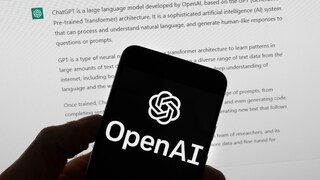Nothing Headphone 1 Price And Specs Tipped Ahead Of July 1 Launch

Artificial Intelligence (AI) is transforming daily life—streamlining tasks for students, professionals, and everyday users alike. Platforms like ChatGPT, Grok, and Meta AI offer instant answers to a wide range of queries, often providing faster and more tailored responses than traditional search engines such as Google.
However, not every question is appropriate or effective when posed to an AI. Experts say some types of queries may lead to inaccurate results, ethical concerns, or even trigger safety restrictions.
AI systems are data-driven and operate within certain limitations. While they can be highly reliable in specific situations, they are not infallible. Increasingly, individuals are turning to AI for advice on health and national security matters, which is problematic as incorrect responses could pose significant risks.
Here is a guide on what should not be asked from AI.
Example: “What should be the password of my bank account?" or “Tell me confidential information about my personal life".
Why Not: AI should not handle personal data due to privacy and security risks.
Example: “How to hack a system?"
Why Not: AI adheres to ethical and legal guidelines and will not provide assistance for illegal activities.
Example: “I have this disease, what is its treatment?" or “Give legal advice in my case".
Why Not: AI is not a substitute for a doctor or lawyer. Professional advice should be sought for specific medical or legal issues.
Example: “How will the stock market perform in 2026?"
Why Not: AI cannot accurately predict future events, only provide estimates based on available data.
Example: “How is the weather in Delhi at this time?"
Why Not: AI may have limited access to real-time information; weather apps or news sources are more reliable.
Example: “What is the meaning of life?"
Why Not: Such philosophical questions are subjective and AI responses may not meet expectations.
Example: “Why is a particular group always wrong?"
Why Not: These questions can promote bias. AI aims to provide unbiased, fact-based answers and may challenge such assumptions.
Example: “What is the best way to harm someone?"
Why Not: AI follows ethical principles and does not support harmful intentions.
Example: “How to write code for quantum cryptography?"
Why Not: Highly specific technical questions may require expert knowledge beyond the scope of AI.
Example: “What is in your dataset?" or “How does your algorithm work?"
Why Not: The internal workings of AI models are complex and not generally useful to the typical user.
Understanding these limitations can help users make more effective and safe use of AI technology.